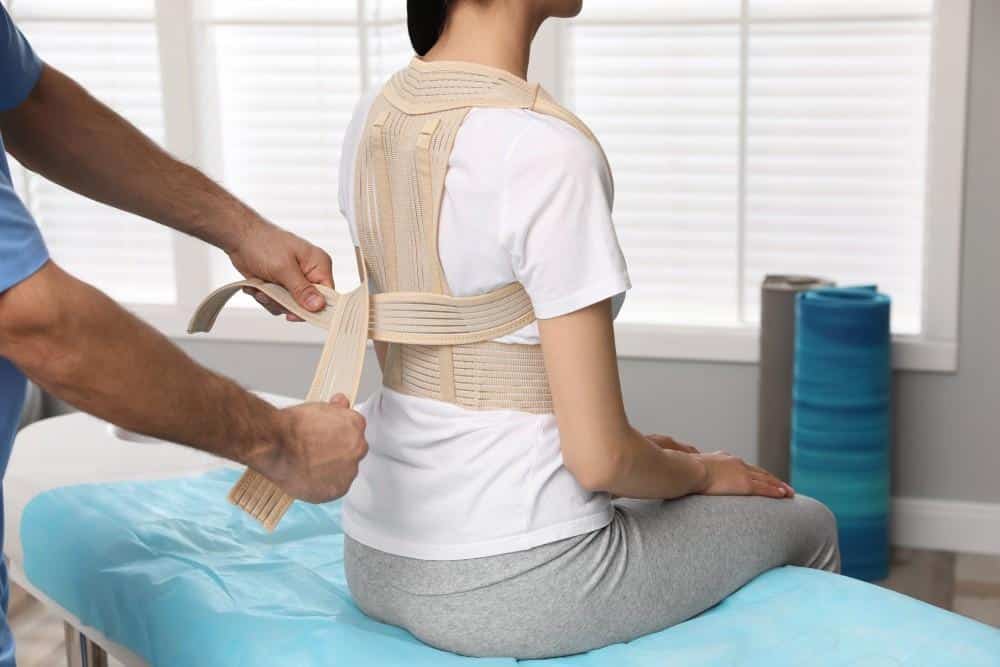Severe, debilitating back pain makes life extremely difficult. Physical therapy, medications, and lifestyle changes may help short term. Still, surgery may be necessary if you can’t do regular activities anymore.
There are various types of spinal surgery, including spinal fusion, laminectomy, and SI joint fusion. Each type of surgery helps relieve pain by addressing the root cause of the problem.
Recovery after spine surgery is the most crucial aspect of the process. It could be the difference between a life without pain and recurrent procedures. Taking the time to listen to your post-procedure instructions is the best way to ensure success after surgery.
Dr. Jordi Kellogg and the team at Kellogg Brain and Spine offer various types of spine surgery to help patients with spine disorders. Dr. Kellogg is a highly experienced neurosurgeon who will be with you during the surgical process, including recovery.
What to expect after spine surgery
Every type of spine surgery is different and addresses various issues within your spine. Surgery to correct these issues can be inpatient or outpatient, depending on many factors, including your overall health, the type of surgery you’re having, and complications during the procedure.
In most cases, you’ll spend anywhere from one to three days in the hospital to ensure you can urinate, have a bowel movement, and walk after surgery.
You also begin physical therapy and rehabilitation before you go home, a crucial aspect of recovery.
It’s normal to have some pain after surgery, which can last several days to several weeks after the procedure. Dr. Kellogg provides pain medication to help you through the worst pain.
If you have stitches in place, we make an appointment about 10 days after the procedure to remove them and assess the incision site.
Getting home after the procedure
After a few days in the hospital, you can go home and continue rehabilitation and the recovery process. You won’t, however, be able or allowed to drive yourself home.
Someone you live with should pick you up and keep an eye on you for the first few days post-op to ensure you’re doing well.
You must get up and move as much as possible to facilitate the body’s healing process. Take things easy at first to avoid overdoing it, as that can be detrimental to your spine after surgery.
It’s a good idea to have some help for the first week or two after surgery, especially for regular household chores like vacuuming, doing the dishes, and taking out the trash.
As the days progress, getting around and performing simple tasks is more manageable. Continue with the exercises and physical therapy to help make recovery easier.
When can I drive?
One of the biggest questions most patients ask is, “When can I drive after surgery?” Unfortunately, it isn’t as early as you may think.
Spinal surgery is a big deal and requires a lot of damage to the surrounding tissues during the procedure. The tissue damage around the site causes pain and weakness, significantly impairing your driving ability.
Another reason you can’t drive directly after surgery is the effects of the pain medications. Most pain medications make you feel tired and slightly disoriented, which is dangerous when driving a car.
You can usually return to driving within a few weeks after surgery. Depending on your surgery type, you can expect to return to driving within two to six weeks post-surgery.
However, if you can’t drive without pain in your back or legs or are still taking medications past that point, Dr. Kellogg pushes back the driving date until you can do so safely.
It’s also good to check with your insurance company before getting in the driver’s seat. Some insurance plans won’t insure drivers who recently had surgery for several weeks after the procedure because of the safety risk to yourself and others.
If you have any questions regarding driving or other postoperative instructions, don’t hesitate to contact the team at our offices in Oregon today, or request an appointment on our website.


